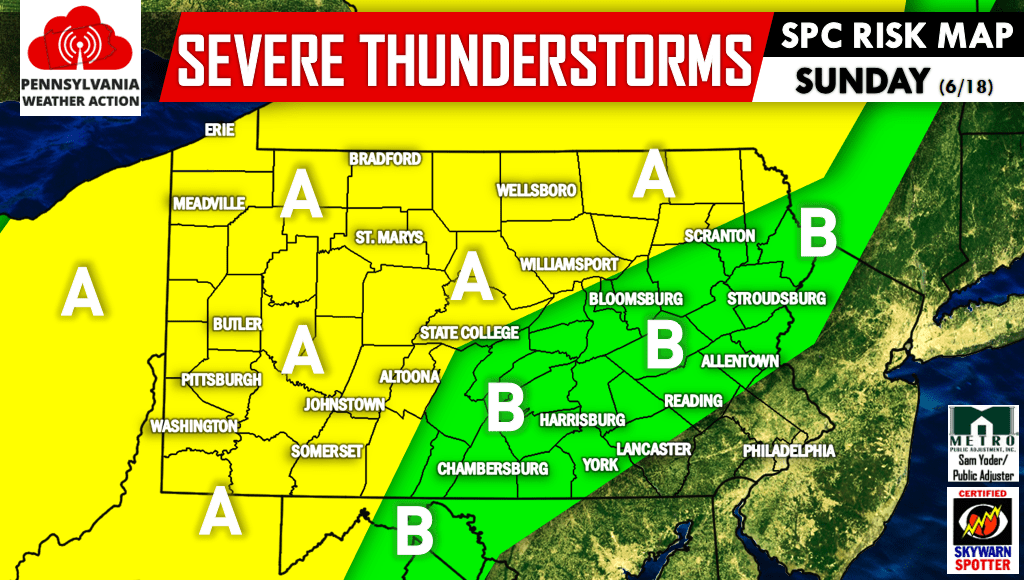Fast-Moving Storms: Recognizing And Responding To Damaging Winds

Table of Contents
Recognizing the Signs of a Fast-Moving Storm
Knowing the signs of an approaching fast-moving storm is the first step in protecting yourself and your loved ones. This involves understanding weather reports, identifying visual cues, and recognizing the telltale sounds of an impending storm.
Understanding Weather Reports and Warnings
Monitoring weather forecasts is paramount for staying informed about potential severe weather. Pay close attention to severe thunderstorm warnings issued by your national meteorological service (like the National Weather Service in the US). Understanding the difference between a watch and a warning is critical:
- Watch: Conditions are favorable for the development of severe thunderstorms. Stay informed and be prepared to take action.
- Warning: A severe thunderstorm is imminent or occurring. Take immediate action to protect yourself and your property.
Utilize various resources to receive timely weather alerts:
- Download a reliable weather app on your smartphone.
- Tune into local news channels and radio stations for updates.
- Sign up for weather alerts through your local emergency management agency.
Identifying Visual Clues
Visual cues can provide early warning signs of approaching fast-moving storms. Look for the following indicators:
- Dark, greenish clouds: This often indicates the presence of large hail and heavy rainfall within the storm.
- Sudden changes in wind: A rapid shift in wind direction or speed can signal an approaching storm front.
- Approaching storm clouds: The rapid formation and advancement of dark, ominous clouds is a significant warning sign.
- Hail: The presence of hail, even small, indicates a powerful storm system.
The intensity of these visual clues often correlates with the severity of the impending storm. Darker, more rapidly moving clouds usually indicate a stronger and potentially more dangerous storm.
Recognizing the Sounds of a Fast-Moving Storm
Your ears can also be valuable tools in detecting approaching fast-moving storms. Listen for:
- Loud thunder: The closer and louder the thunder, the closer the storm is.
- Howling wind: A significant increase in wind speed and intensity is a clear sign that a storm is nearby.
The intensity of these sounds provides crucial information about the storm's proximity and potential strength. A sudden increase in the loudness of thunder or the howling of wind indicates a rapidly approaching and potentially dangerous storm.
Preparing for a Fast-Moving Storm
Preparation is key to mitigating the risks associated with fast-moving storms. This involves creating an emergency plan, securing your property, and assembling an emergency kit.
Developing an Emergency Plan
A well-defined family emergency plan is essential. This should include:
- Evacuation routes: Identify multiple escape routes from your home and neighborhood.
- Meeting points: Designate safe meeting places in case family members get separated.
- Communication strategies: Establish a communication plan, including backup methods for contact in case of power outages.
Securing Your Property
Before a storm hits, take steps to protect your home and property:
- Bring loose objects inside: Secure outdoor furniture, garbage cans, and anything else that could become airborne projectiles.
- Trim trees: Remove any dead or overhanging branches that could fall and cause damage.
- Protect windows and doors: Use storm shutters or board up windows and reinforce doors to prevent damage from high winds.
Assembling an Emergency Kit
An emergency kit is crucial for surviving a fast-moving storm and its aftermath. Include:
- Water: Store at least one gallon of water per person per day for several days.
- Non-perishable food: Stock up on easy-to-prepare, non-perishable food items.
- Flashlight and extra batteries: Ensure you have a reliable light source.
- First-aid kit: Include essential medical supplies and medications.
- Battery-powered radio: Stay informed about weather updates during power outages.
Responding to a Fast-Moving Storm
When a fast-moving storm strikes, immediate action is crucial.
Seeking Shelter Immediately
The most important action during a fast-moving storm is seeking shelter immediately:
- Interior rooms: Move to an interior room on the lowest level of your home, away from windows.
- Basement or storm cellar: Basements and storm cellars offer the best protection from high winds and flying debris.
Avoid windows and areas prone to flooding. Interior rooms away from exterior walls offer better protection than those directly facing the storm.
Staying Informed During the Storm
Continue monitoring weather updates throughout the duration of the storm:
- Utilize weather apps and radio: Stay up-to-date on the storm's track and intensity.
- Heed official warnings: Follow instructions given by local authorities.
Post-Storm Actions
After the storm passes, take the following steps:
- Assess damage: Carefully inspect your property for damage, but prioritize safety.
- Contact emergency services: Report any injuries or significant damage to your home or property.
- Avoid downed power lines: Stay away from any downed power lines and report them immediately.
Conclusion
Fast-moving storms pose a serious threat, but preparedness can significantly reduce the risks. By understanding how to recognize the signs of an approaching storm, developing a comprehensive emergency plan, and taking appropriate actions during and after the event, you can greatly increase your chances of staying safe. Don't wait for the next fast-moving storm to catch you unprepared. Take action today to protect yourself and your loved ones. Develop your emergency plan, assemble your emergency kit, and stay informed about severe weather in your area. Your life may depend on it.

Featured Posts
-
 Understanding D Wave Quantums Qbts Monday Stock Market Drop
May 21, 2025
Understanding D Wave Quantums Qbts Monday Stock Market Drop
May 21, 2025 -
 Arunas Unexpected Loss At Wtt Chennai
May 21, 2025
Arunas Unexpected Loss At Wtt Chennai
May 21, 2025 -
 Mass Layoffs At Abc News What Happens Next
May 21, 2025
Mass Layoffs At Abc News What Happens Next
May 21, 2025 -
 Nyt Mini Crossword Solutions For March 18 2025
May 21, 2025
Nyt Mini Crossword Solutions For March 18 2025
May 21, 2025 -
 The Race To Break The Trans Australia Run Record
May 21, 2025
The Race To Break The Trans Australia Run Record
May 21, 2025
Latest Posts
-
 Antiques Roadshow National Treasure Appraisal Leads To Arrest Of Couple For Trafficking
May 22, 2025
Antiques Roadshow National Treasure Appraisal Leads To Arrest Of Couple For Trafficking
May 22, 2025 -
 Antiques Roadshow Stolen Artifacts Result In Couples Arrest
May 22, 2025
Antiques Roadshow Stolen Artifacts Result In Couples Arrest
May 22, 2025 -
 National Treasure Trafficking Antiques Roadshow Episode Results In Arrests
May 22, 2025
National Treasure Trafficking Antiques Roadshow Episode Results In Arrests
May 22, 2025 -
 Antiques Roadshow Leads To Jail Time For Couple With Stolen Items
May 22, 2025
Antiques Roadshow Leads To Jail Time For Couple With Stolen Items
May 22, 2025 -
 Us Couple Facing Charges After Bbc Antiques Roadshow Episode
May 22, 2025
Us Couple Facing Charges After Bbc Antiques Roadshow Episode
May 22, 2025
